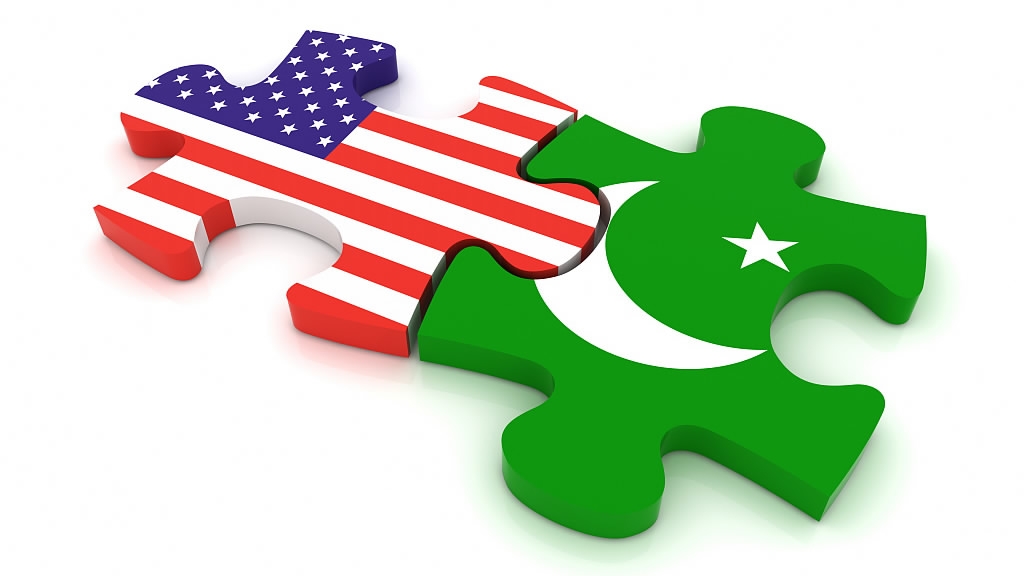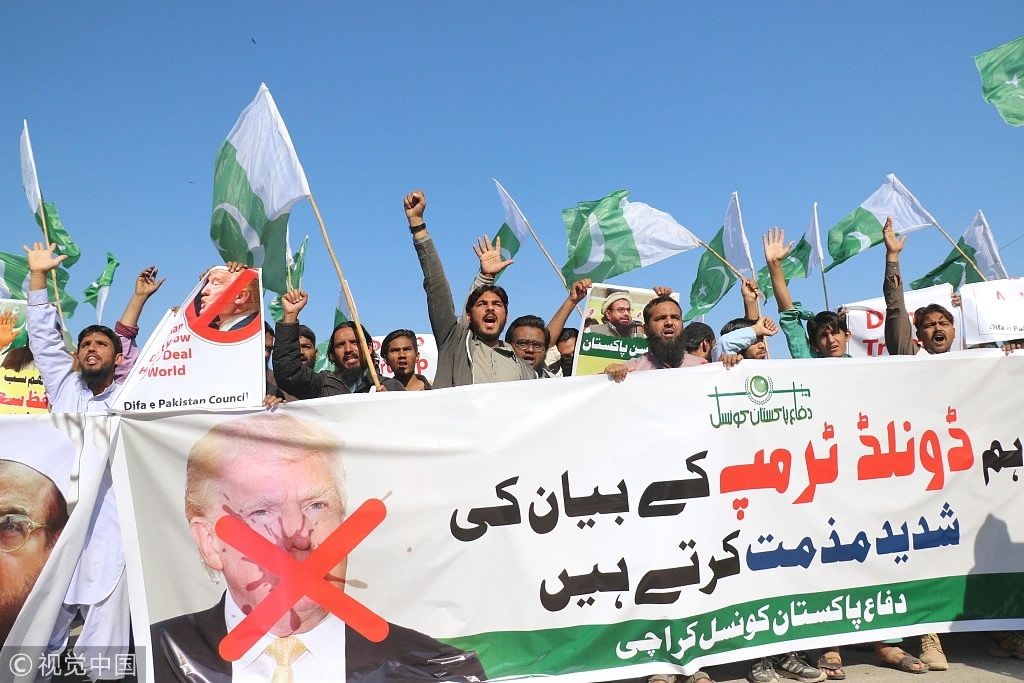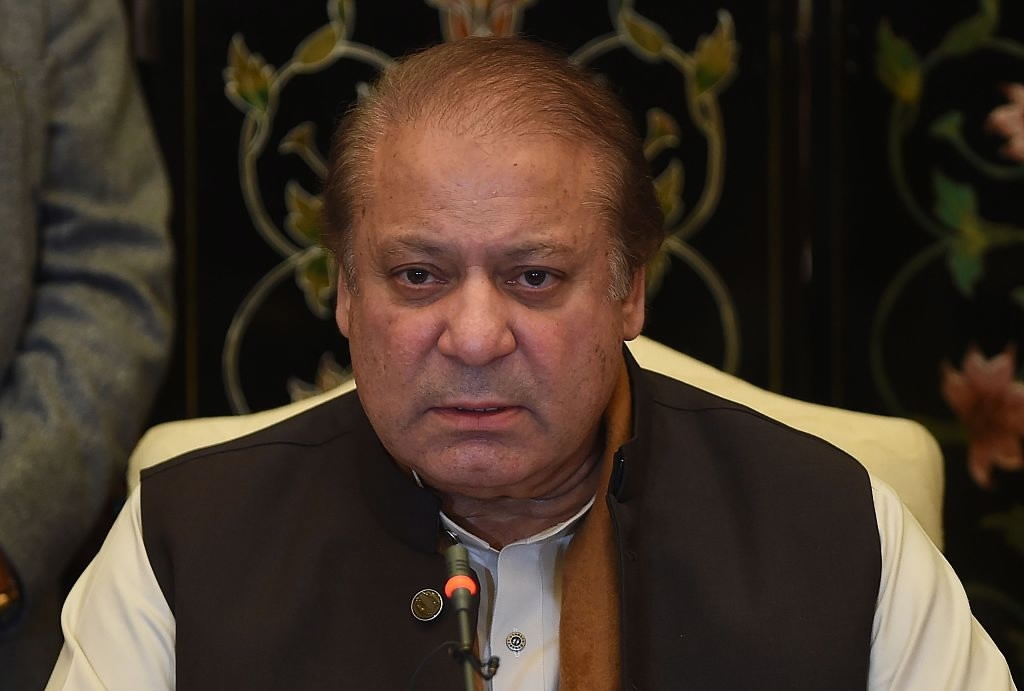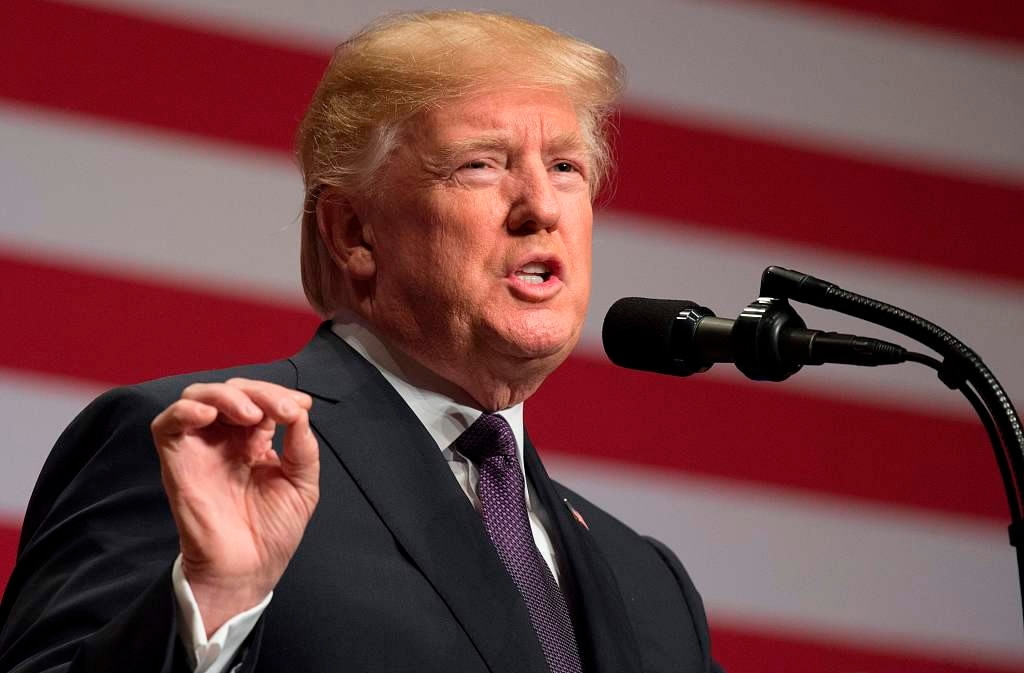
Opinions
07:45, 04-Jan-2018
Opinion: US-Pakistan; friends become foes
Guest commentary by Malik Ayub Sumbal

The current Pakistan-US diplomatic row is nothing new, especially for those who know the love-hate relationship between the CIA and its Pakistan counterpart, the ISI. As both fight the war against terrorism, simultaneously there is a war going on between the two sides and as they seek to protect vested interests, were pushed eventually towards their current positions.
After 9/11, Blackwater operations in Pakistan, CIA regional headquarters moving into various Pakistani cities and Osama bin Laden's death in Abbottabad are all examples of the topsy-turvy Pakistani-US foreign policy. How CIA contractor Raymond Davis landed in Pakistan and then ignited a diplomatic crisis all are on record.
What are the major differences?

Supporters of Difa-e-Pakistan Council, a Pakistan political coalition, chant slogans on January 2 during a protest against Donald Trump's statement against Pakistan in Karachi. /VCG Photo
Supporters of Difa-e-Pakistan Council, a Pakistan political coalition, chant slogans on January 2 during a protest against Donald Trump's statement against Pakistan in Karachi. /VCG Photo
However, the current nature of differences and level of accusations are much higher than any previous one. The timing of Donald Trump's tweets about Pakistan are very unexpected. The fact that he chose the very first day of 2018 to tweet about Pakistan indicates something of a very serious nature may be cooking.
Pakistan has been refusing US demands since Donald Trump took office. Even during his presidential campaign, he promised to give a tough time to Pakistan, which may, therefore, not expect any gentle treatment from him moving forward.
The US may think that Pakistan’s level of cooperation is not as it should be. However, Pakistan believes it has done a lot and now it’s time for the world to do more.
Pakistan has changed its foreign policy and especially its priorities over the last couple of years. Trump’s stance is much harder than that of the previous US administration.
Unfortunately, Pakistan has few lobbyists close to the Trump administration who can streamline these deteriorated relations.
The current state of relations and the rhetorical coercion is actually all part of the mounting pressure on Pakistan to do more. However, if the relationship gets tense again, it could lead towards the worst case scenario.
Will Pakistan bow to US pressure?

Former Pakistani Prime Minister Nawaz Sharif. /VCG Photo
Former Pakistani Prime Minister Nawaz Sharif. /VCG Photo
There have been countrywide anti-Trump and anti-US protests in Pakistan that may increase in the next few days. For Pakistan, it will be a major test to resist the pressure. Pakistan has already started its homework on how to handle the next move from the US.
The US government said in August that it was considering withholding 255 million US dollars in aid because Pakistan was not cracking down on extremists. In terms of withholding it will not be an effective pressure tactic by the US to gets influence on Pakistan. What are the motives behind Trump's recent sweeping attack to refuse or discontinue financial aid to other states? Trump's poll ratings are now among the worst ever for a US president. In order not to fall further in the favor of his constituents, his motto seems to be "grab them by the money" by denying promised financial support to countries like Pakistan and Palestine that most Americans cannot identify on the world map anyway.
On the other hand, the maneuver serves to distract from American mistakes in Afghanistan, where the United States has maneuvered into a dead end, as Pakistan’s Foreign Minister Khawaja Asif said on television.
But the UN Ambassador Nikki Haley also stated, “The president is willing to go to great lengths to stop all funding for Pakistan, as it continues to harbor and support terrorism.”
This is exactly another pressure tool to further malign Pakistan. However, the ambassador has not clarified what kind of greater lengths.
Who will be the loser?

US President Donald Trump. /VCG Photo
US President Donald Trump. /VCG Photo
Pakistan has already lost too much in the war against terrorism and repeatedly counted its sacrifices which the world except the US has acknowledged. Under current circumstances the US will take a major risk to lose in Afghanistan. By adding more troops, things could get out of hand for the Americans.
After the trilateral recent conference between Pakistan, Afghanistan and China in Beijing, the US seems to be unhappy about the peace process with the Taliban. However, in Afghanistan, the Taliban is already divided into various groups, so in 2018, an Afghanistan peace process will be a major challenge that will give the US a tough time.
There is also the major risk of an emerging guerrilla war due to the intervention of the major global and regional power players in Afghanistan.
The US will also lose all remaining support from Pakistan whose government has already suspended major cooperation with Washington. As a consequence, the US, after its suspension of aid, may lose other cooperation agreements which are still in process.
(Malik Ayub Sumbal is a columnist, political analyst and broadcaster. The article reflects the author's opinion, and not necessarily the view of CGTN.)

SITEMAP
Copyright © 2018 CGTN. Beijing ICP prepared NO.16065310-3
Copyright © 2018 CGTN. Beijing ICP prepared NO.16065310-3